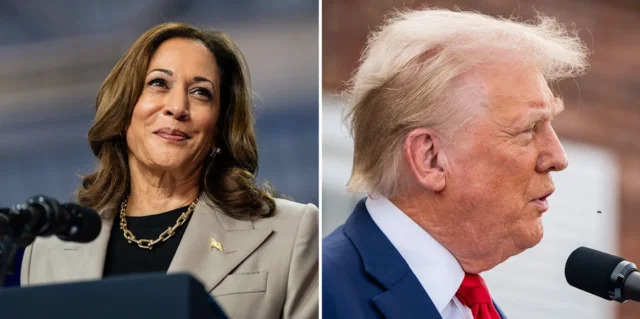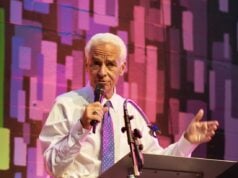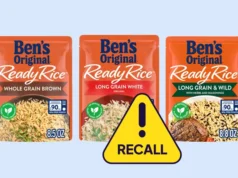
Jim Tankersley – Jim Tankersley has covered economic policy in presidential elections since 2004.
Vice President Kamala Harris and former President Donald J. Trump flew to North Carolina this week to deliver what was billed as major speeches on the economy. Neither laid out a comprehensive policy plan — not Ms. Harris in her half-hour focus on housing, groceries and prescription drugs, nor Mr. Trump in 80 minutes of sprinkling various proposals among musings about dangerous immigrants.
But in their own ways, both candidates sent voters clear and important messages about their economic visions. Each embraced a vision of a powerful federal government, using its muscle to intervene in markets in pursuit of a stronger and more prosperous economy.
They just disagreed, almost entirely, on when and how that power should be used.
In Raleigh on Friday, Ms. Harris began to put her own stamp on the brand of progressive economics that has come to dominate Democratic politics over the last decade. That economic thinking embraces the idea that the federal government must act aggressively to foster competition and correct distortions in private markets.
The approach seeks large tax increases on corporations and high earners, to fund assistance for low-income and middle-class workers who are struggling to build wealth for themselves and their children. At the same time, it provides big tax breaks to companies engaged in what Ms. Harris and other progressives see as delivering great economic benefit — like manufacturing technologies needed to fight global warming or building affordable housing.
That philosophy animated the policy agenda that Ms. Harris unveiled on Friday. She pledged to send up to $25,000 in down-payment assistance to every first-time home buyer over four years while directing $40 billion to construction companies that build starter homes. She said she would permanently reinstate an expanded child tax credit that President Biden temporarily established with his 2021 stimulus law while offering even more assistance to parents of newborns.
She called for a federal ban on corporate price gouging on groceries and for new federal enforcement tools to punish companies that unfairly push up food prices. “My plan will include new penalties for opportunistic companies that exploit crises and break the rules,” she said, adding: “We will help the food industry become more competitive because I believe competition is the lifeblood of our economy.”
Questions remain over the rest of Ms. Harris’s agenda, including which tax increases she would favor to offset those tax cuts and spending programs. The nonpartisan Committee for a Responsible Federal Budget, which is focused on deficit reduction, estimated on Friday that the plans she unveiled would raise the federal deficit by $1.7 trillion over the next decade, if not paid for.
But the main thrust of Ms. Harris’s vision is clear: a mixture of government intervention and government assistance, all meant to help Americans climb their way into the middle class.
As Gene Sperling, a former economic aide to three Democratic presidents who is a senior economic adviser to Ms. Harris, put it: “Her focus on an opportunity economy and her stress on homeownership show she is focused like a laser on both lowering costs to help families make ends meet and being able to get ahead by owning a home or starting a small business.”
Disclaimer
The information contained in South Florida Reporter is for general information purposes only.
The South Florida Reporter assumes no responsibility for errors or omissions in the contents of the Service.
In no event shall the South Florida Reporter be liable for any special, direct, indirect, consequential, or incidental damages or any damages whatsoever, whether in an action of contract, negligence or other tort, arising out of or in connection with the use of the Service or the contents of the Service. The Company reserves the right to make additions, deletions, or modifications to the contents of the Service at any time without prior notice.
The Company does not warrant that the Service is free of viruses or other harmful components












